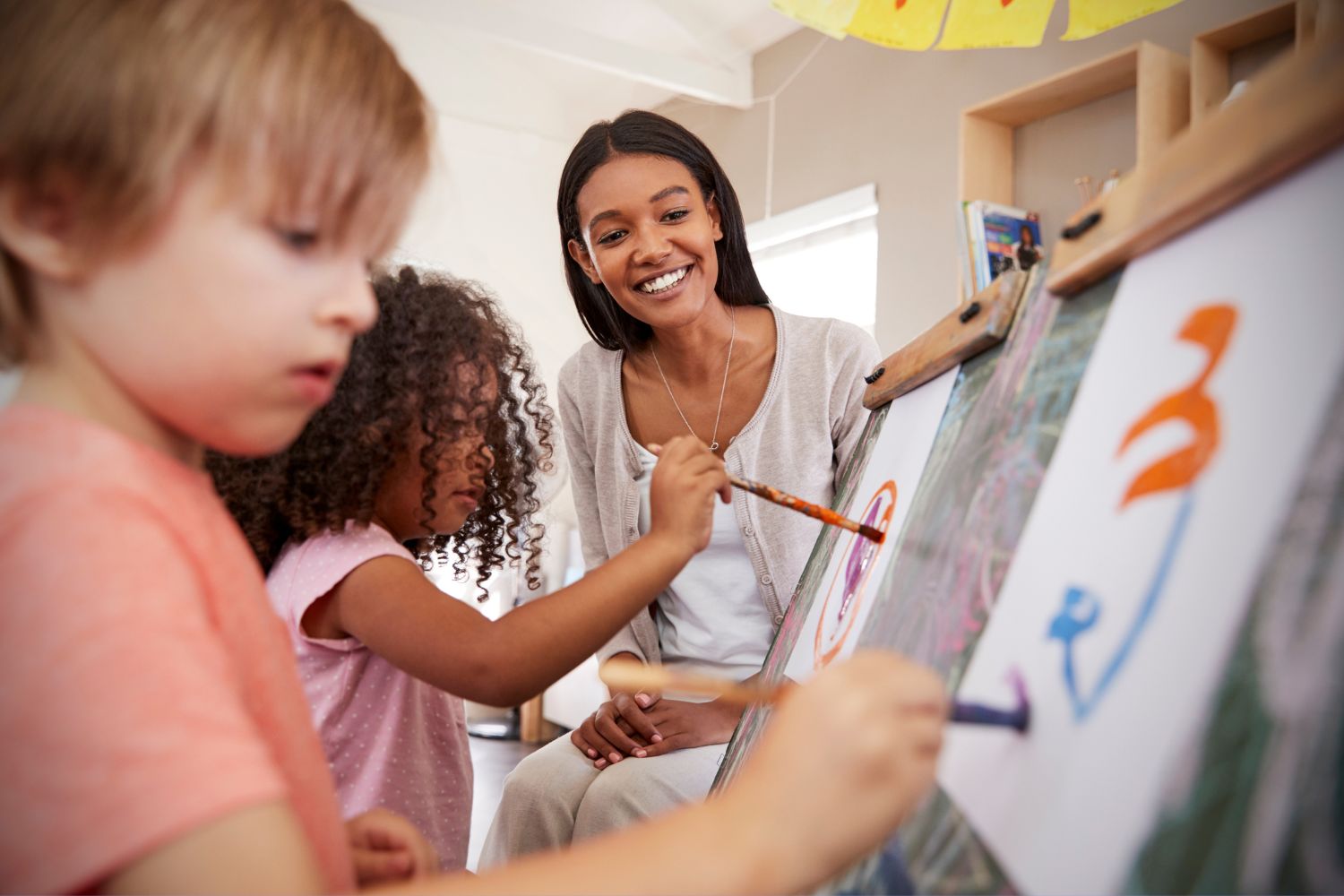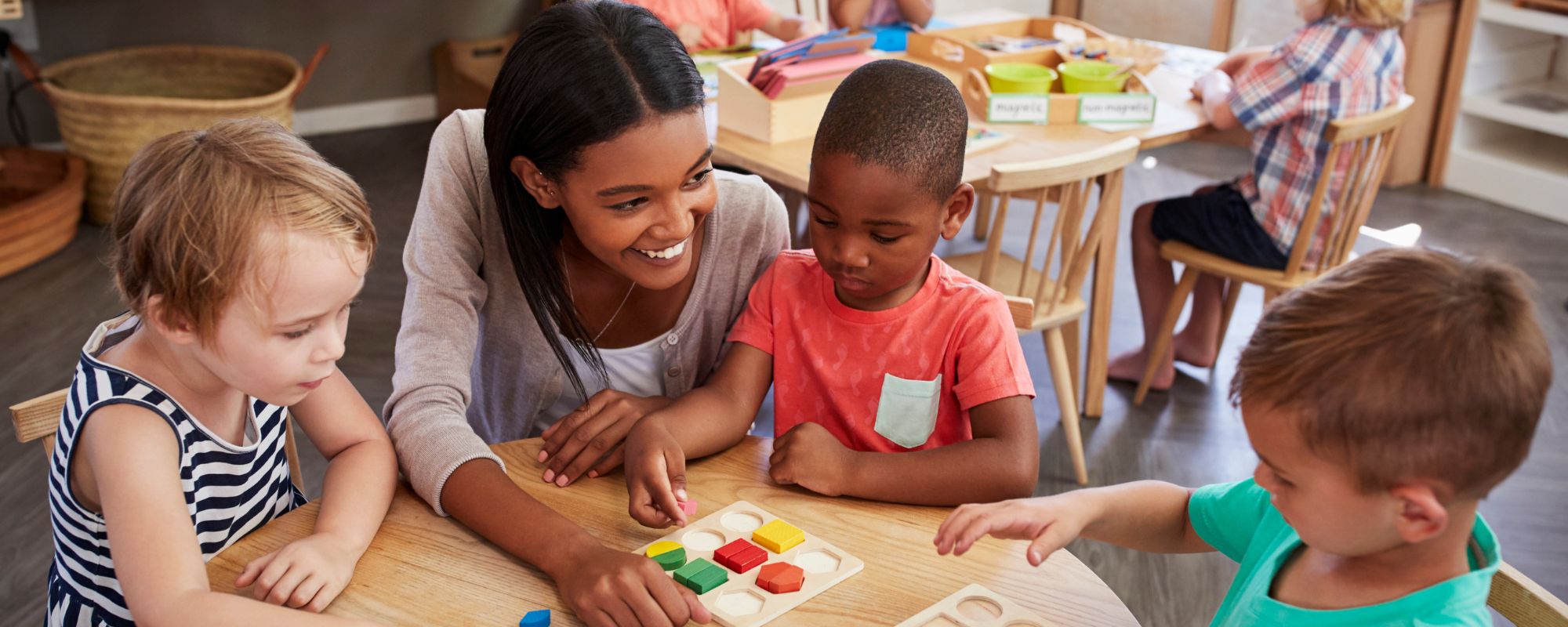What is the Montessori Method ?

More and more Nursery and school in Dubai are basing their working system on Maria Montessori’s method. Such institutions can be found not only in big cities, but also in small towns. What exactly is this method based on? What are the reasons for its uniqueness? Can it also be used for independent work with a child at home?
Maria Montessori - a unique pedagogue
Maria Montessori was a doctor and educator in Italy. She was not a fan of the traditional methods of education and learning, which were based on discipline and absolute obedience, keeping children tied to desks and stifling their natural curiosity. She therefore developed her own teaching method, which aimed at the free and full development of children according to their natural stages of development and interests. In 1907, she opened her own institution, the Casa Dei Bambini, which was entirely based on her principles and methods. And while she initially focused on children with various disabilities, she soon came to the conclusion that this new way of teaching was also beneficial for healthy and fully capable students.
What is the Montessori Education Method? What are its main principles?
The Montessori method of education is a system of education that aims to foster the natural interests and activities of children. Essentially, the Montessori method is based on the belief that children can initiate their own learning experiences. A Montessori classroom focuses on self-directed activity, hands-on learning and collaborative play. Children in Montessori classrooms make creative choices in their learning, while the class and the highly trained teacher provide age-appropriate activities. According to Montessori theory, in the first six years, children move through five different stages: language, motor skills, sensory skills and social skills. Parents often seek out early learning centres and Nursery that apply the Montessori method because they want their child to thrive in an organic and natural environment. However, few parents know that the Montessori Method can be applied at home, in everyday tasks, in their own domestic environment.
The main principles of Maria Montessori's method are as follows:
Ensure that stools are available next to the kitchen sinks and basins so that children can learn to wash their hands by themselves.
Organise some clothes in baskets or low drawers. Make them accessible to children so they can pick out their favourite outfits or put them away after laundry.
Make healthy snacks available to children. Have the water bottle filled and stored at a low level, encouraging children to take care of their own needs independently.
Place toys and puzzles on shelves or in baskets at a low level, which can promote independence and help children choose the toy they want.
Place children’s books on the lower shelves of your bookcase so that they can access their favourite book whenever they want. This helps to promote a love of reading.
On the other hand, as a parent, you should insist on promoting your children’s basic skills, as these skills will accompany them throughout their journey to adulthood. Teaching your child to take care of themselves and their environment from an early age will prepare them to be caring and competent adults in the future. It will take more effort on the part of parents to teach children how to properly wipe the table after meals or where to put their cups, but their minds are so absorbing that they will be able to do it independently in no time.

The Montessori Method at home
However, some of the principles of the Maria Montessori Method can be successfully implemented at home. We suggest how to do this.
Watch your child carefully. Through this you will find out what interests him/her at the moment. When you notice a passion, offer appropriate toys and aids. For example, if you see that your toddler is interested in drawing, provide coloured pencils, paints and markers, as well as sheets of paper, to keep handy. If you see that he is interested in numbers or letters, suggest appropriate books, exercise books, letter and number blocks, magnetic letters and numbers, etc.
Allow the child to be independent. Do not do for them what they can already do. Don’t dress them if they already know how to do it themselves, even if it takes much longer.
Involve your child in practical activities. Involve them in cleaning, hanging laundry, gardening or preparing meals. Remember to keep your child’s safety in mind, but you will probably find more than once that if you allow your child to be independent, their dexterity and responsibility will develop at the same time.
Let your child choose and make decisions. Let him decide for himself what he wants to play with, what book we should read to him before bedtime, what he will have for breakfast (\”Do you prefer cereal or a sandwich?\”) or what he will wear (the clothes, or at least some of them, should be within the child’s reach so that he can help himself).
Choose appropriate toys (learning materials). Before buying a new toy for your child, think about its purpose and use. Examine it carefully and assess whether it can teach your child something and whether it will be of interest to him/her.
When considering the implementation of the Montessori Method in a child’s life, it is important to take this into account.
Children should be given tasks appropriate to their age and ability. For example, young children can be taught to water plants, wipe the table after meals, and pick up and put away their toys. Older children can incorporate more complex tasks into their routine, such as preparing meals, helping with shopping, washing fruit and vegetables, taking out the rubbish and more…
From infancy to childhood to adulthood, children grow, their interests and skills change, their level of play changes and it is the adult’s responsibility to help, support and guide children along the way.
Come and discover our Montessori Nursery located in Dubai in Al barsha 3. Our Montessori teacher will be happy to show you their method of education. Do not hesitate to contact us via our contact form or by phone: +971 50 377 5396 to make an appointment and visit our Nursery.

